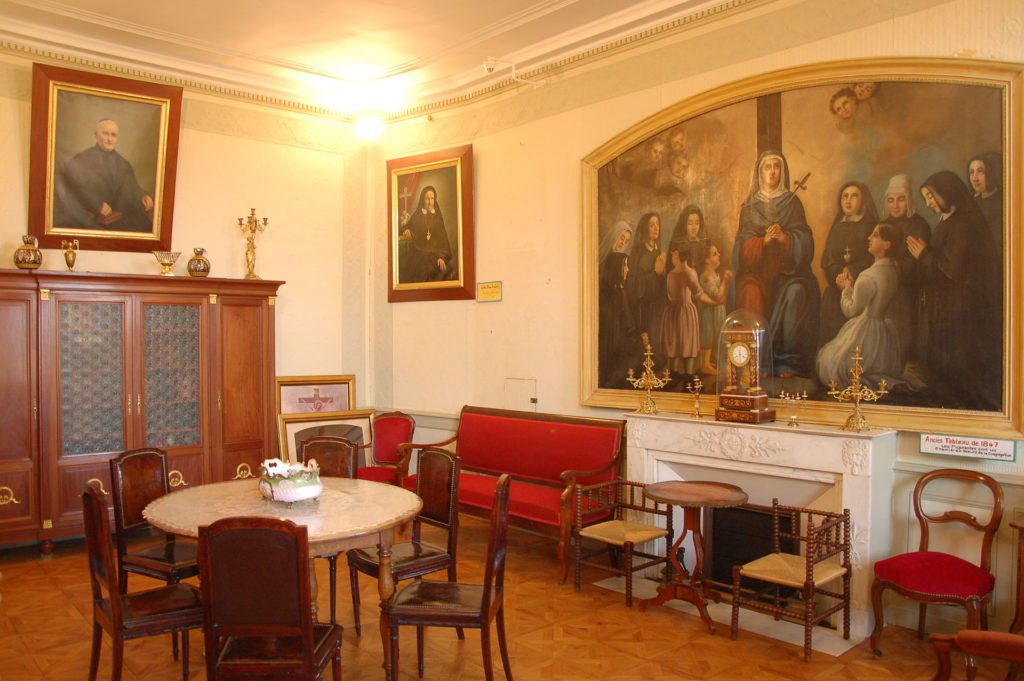To respond to the needs of the poor domestic servants, Bishop Eugene had been instrumental in the founding of the Sisters of Compassion in collaboration with Fr. Jean François Barthès, S.J.
I visited the establishment of the new Dames de la Compassion [Sisters of Compassion]. Evidently, the good God is helping this good Father Barthès to make him succeed in some undertakings where the most skilful would fail.
In his diocese he wanted the laity to be fully involved in the various works of mercy, and tried to provide religious to support them, where possible. The founding of the Sisters of Compassion aimed at supporting the ministry to domestics.
Even so, I recommended to him that l’Oeuvre des Domestiques [the Work of the Domestics] be not neglected. It is essentially for this work that I have adopted this new Order or, to say it better, that I have let it develop under my auspices and my authority.
Eugene de Mazenod’s Diary, 29 June 1845, EO XXI
“Arriving in Marseilles in 1843, Jean-François Barthès encountered a community of Sisters of the Holy Family from Bordeaux who had been called to the city by Eugene de Mazenod, Bishop of Marseilles, to care for the sick in their homes and to open a house for young women who had left the country to work as domestic servants. Bishop de Mazenod then thought of creating an autonomous congregation, entirely dedicated to the work of domestic servants, and entrusted the task to Barthès. Barthès created the congregation on June 25, 1843 in Marseilles; it was erected as an institute of diocesan right on June 16, 1845, the same day the first twelve postulants received the religious habit from the bishop.” https://fr.wikipedia.org/wiki/Sœurs_de_Notre-Dame_de_la_Compassion_de_Marseille

A picture of Fr. Barthès on the left, and of the first Sisters on the right

As I sit here I reflect on the many ways in which we get to serve others.
Eugene in his lifetime founded many congregations to care for specific needs of the people, whether they were women or men, because he saw the poverty within them. Our Lady of Compassion of Marseilles and as I sit with that my heart begins to sing from Isaiah 52 “how lovely on the mountain are the feet of Him who brings Good News”. Both Fr. Barthès and Eugene were responding to a quite specific need which does not appear to be so evident as it was in Eugene’s time.
I think of what this looks like today in the present time. I think of how the Oblates, the congregation respond to the needs of women, of members of the LGBT community, to people of colour and people coming from diverse cultures, members of the laity who feel called to share in the Mazenodian charism not as priests and nuns, but as members of the laity living in a particular light. Different and yet in some ways the same.
Today we don’t seem to set up so many new religious communities to fill new needs, but we do begin new ministries to serve specific needs, and very much in the light of Justice, Peace and the Integrity of Creation. “Close to the people” and in that sense that Mazenodian characteristics are still very evident and alive. We as the people of God get to serve each other in ways that are also suited to laity, specialists in our own way. We too get to serve in such as way as to” succeed in some undertakings where the most skilful would fail.”